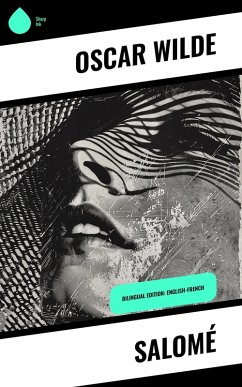In Oscar Wilde's one-act play "Salomé," the narrative intricately weaves the biblical tale of Salomé and her infamous dance, exploring themes of desire, manipulation, and the clash between innocence and decadence. Written in French and rich in symbolism, the text showcases Wilde's trademark wit and lyrical prose, reflecting the aesthetic movement's influence on his work. The drama encapsulates the tension between beauty and morality, inviting audiences to confront the darker aspects of human nature, all while employing a theatrical style that emphasizes visual imagery and dramatic tension. Oscar Wilde, a luminary of the Victorian era known for his provocative ideas and flamboyant personality, drew inspiration from his exposure to both classical texts and contemporary social critiques. His interest in themes of sexuality, power, and societal constraints is evident in "Salomé," written during Wilde's exile in France. The play captures Wilde's fascination with the complexities of female agency and the grotesque allure of sensuality, reflective of both personal experiences and broader cultural dialogues of the time. "Salomé" is a must-read for those captivated by the intricacies of human desires and the ramifications of transgression. Wilde's elegant prose and profound themes invite readers into a world where beauty and horror coexist, making this timeless work not only a cornerstone of theatrical literature but also a poignant exploration of the eternal struggle between passion and consequence.
Dieser Download kann aus rechtlichen Gründen nur mit Rechnungsadresse in A, B, BG, CY, CZ, D, DK, EW, E, FIN, F, GR, HR, H, IRL, I, LT, L, LR, M, NL, PL, P, R, S, SLO, SK ausgeliefert werden.









